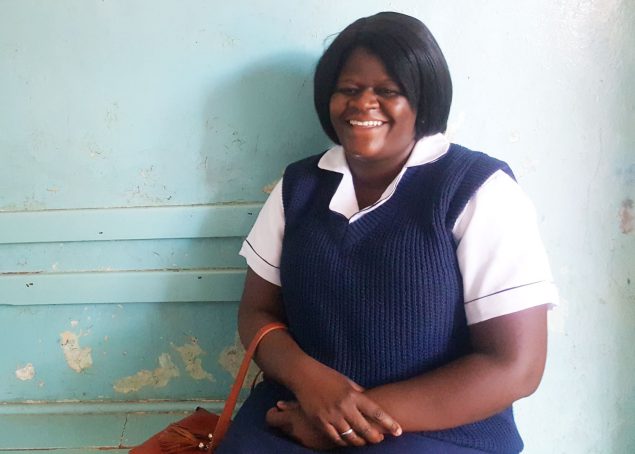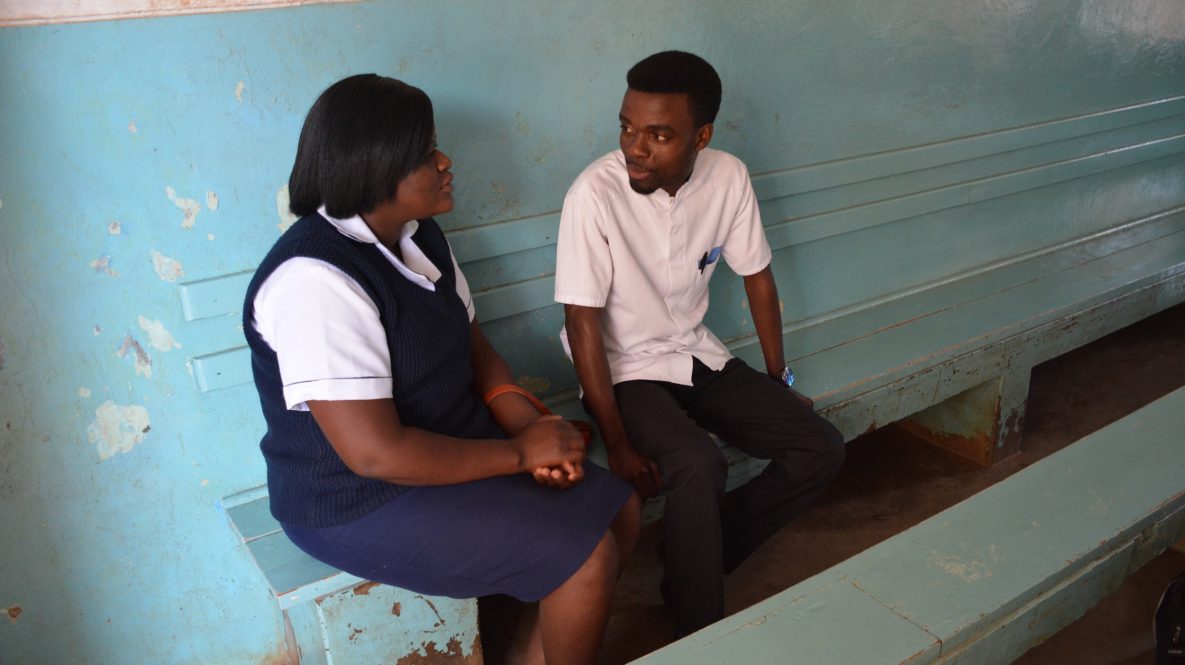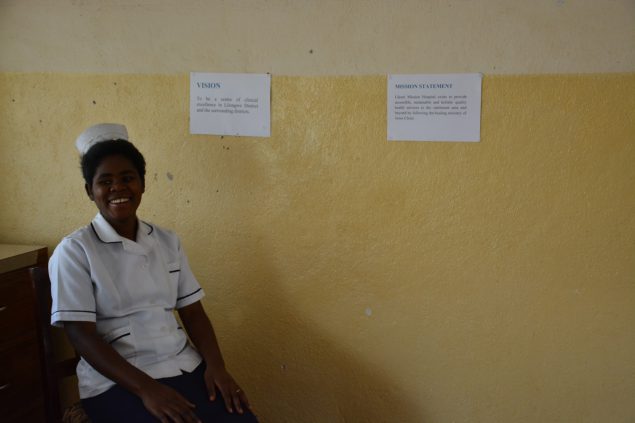Staffing for Success: Strengthening the Delivery, Coordination, Scale-up, and Monitoring of HIV services in the Faith-Based Health Sector in Malawi

Charlotte notes that she has appreciated the opportunity: “I want to be the person helping patients and providing support in the Malawi health system.” One of her favorite parts of the work is supporting efforts in prevention of mother-to-child transmission of HIV.
Increasing access to HIV treatment is a key priority of CDC-Malawi and the Malawi Ministry of Health. Although Malawi has made tremendous gains in HIV testing, treatment, and viral load suppression, Malawi has acute shortages in human resources for health, with a ratio of only 0.02 physicians/1,000 people in the population and 0.3 nurses or midwives per 1,000 people. In 2016, Malawi introduced the HIV Test and Treat Strategy and differentiated service models, which brought renewed focus on Human Resources for Health (HRH) needs. Through Christian Health Association of Malawi (CHAM), CDC supports a project to strengthen the delivery, coordination, scale-up, and monitoring of HIV services throughout the faith-based health sector of Malawi. The major components of this project are focused on health workforce strengthening with the goal of 1) increasing the number of healthcare workers trained at CHAM colleges to deliver HIV/AIDS services at high-HIV-burden sites; 2) strengthening linkages between HRH production, recruitment, and deployment of pre-service health worker graduates; and 3) increasing the proportion of healthcare student graduates who successfully qualify for service delivery.
Since 2011, the initiative has supported scholarships for mid-level health professionals from the 11 CHAM colleges and Malawi College of Health Sciences. The colleges train Medical Assistants, Nurse Midwives, Pharmacists, Laboratory and Clinical Technicians. Beneficiaries of CDC scholarships spend two to three years in training before certification with their respective regulatory bodies. From pre-service to in-service sites, current students and graduates are tracked using the Training System Monitoring and Reporting Tool (TrainSMART), which is a Web-based training data collection system that can serve as a tool for making evidence-based HRH management decisions.

Charlotte Maganga Chimthuli & (Left) & Aubrey Dakalira (Right) Both are graduates of the HRH program and work in a hospital outside of Lilongwe, where over 3,000 persons living with HIV receive treatment.
Currently, PEPFAR is supporting 909 students (423 females and 486 males) from different health professions. Between 2012 and 2016, 915 graduates have benefited from the program. Based on an agreement with the Ministry of Health, CHAM deployed these graduates to government and CHAM health facilities to provide health services. Supported graduates are required to serve at least three years in designated health facilities where the shortage of staff and the burden of HIV are high.

Charity Jingo Sefasi is a recent graduate. She noted that her heart was filled with great joy when she learned about her acceptance into the CDC HRH scholarship program and hopes others are able to receive similar opportunities.
The health workforce strengthening strategy has demonstrated that investing in pre-service education can reduce acute health worker shortages and optimize uptake of life-saving health services, which include HIV testing and counseling and antiretroviral therapy. The back-end investment by PEPFAR through the support of recruitment of qualified graduates has made service providers more readily available for work at the end of their training, further supporting efforts to reach HIV epidemic control.